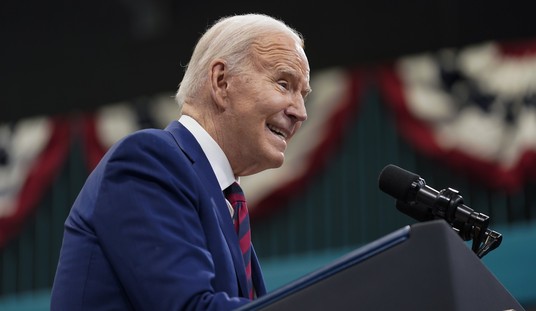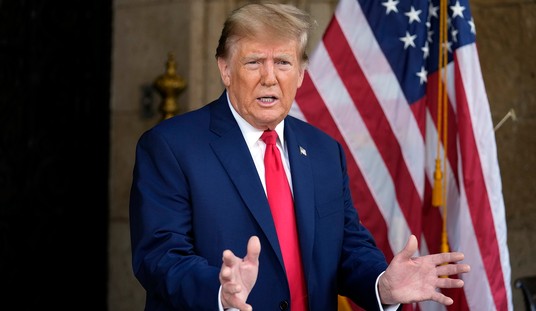CNN's Jake Tapper may be the most respect down-the-middle journalist in Washington right now. He has some thoughts on how Jeff bezos might save the failing Washington Post.
And he put them out there on in an interview with me on yesterday's radio show, transcript here:
HH: I wonder what do you think Bezos is up to?
JT: I don’t know. It’s such a miniscule amount of money for him, less than 1% of what he’s worth, right? He’s worth like $20 billion dollars or something like that. So I don’t know. I mean, I think ultimately, the tech industry is, wants to have a platform, wants to have, they have lobbyists in Washington, D.C. There’s a lot of stuff that goes on here having to do with lobbying that we don’t know about, and tech certainly is part of that in terms of intellectual property, in terms of privacy issues, in terms of what they’re forced to cooperate with by the government, in terms of trade. It doesn’t hurt for somebody like that to be involved as a major media player in the city, even if he lives in the other Washington. But I don’t know. Was it Charles Foster Kane who said I would like to buy a newspaper? I’m not really sure what would drive him other than this is obviously a guy who’s made his fortune having to do with books, and that there seems to be, and he seems to invest in things that tickle his intellectual fancy. And maybe owning one of the most prestigious newspapers in the world, even if it’s not what it once was, is part of that.
HH: Now on that, we’re going to end up with a movie about Bezos that ends up with him saying Rosebudzos or something. But I think the by line is the brand in media now. And if you look at the Washington Post, and you used to be a print guy, and you run down, they’ve got some of the greatest reporters in the world. I saw that Dan Balz was on with you yesterday. He was on with me. Rajiv Chandrasekaran, Greg Sargent, Cillizza, Del Wilbur, Jay Mathews, you name it, and they’re bloggers are great, Ezra Klein and Greg Sargent and Jennifer Rubin. Does he revolutionize it? Or does he just let it go on? Or does he free those writers to do even more of what they do well?
Recommended
JT: I think that there needs to be a revolution at the Washington Post. I say this as somebody, the Washington Post, I loved the Washington Post before I read the New York Times. The first time I saw the Washington Post as a kid, I was raised in Philadelphia where the newspaper tradition is good, but the first time I saw the Washington Post, it was like a revelation of what a newspaper could be. And the newspaper has lost an unbelievable amount of talent in the last decade. There was a time in the city in the 90s where you would get the Washington Post, and after reading the front page, you would go right to the Style section, and you would read the Style section, you would read the Reliable Source, Lois Romano did it at the time. She now writes for Politico. But there’s been such an exodus of talent. There’s still some very, very talented people there. You named a bunch of them. There are others as well. But there’s been such an exodus of great talent there. And when you think about the fact that, and you should have one the founders of Politico to talk about it, but I believe the people who started Politico, John Harris wrote for the Washington Post at the time. And Jim Vandehei, I think he was with the Wall Street Journal at the time, I think they wanted to do it at the Washington Post. They wanted to do Politico at the Washington Post, and they were not allowed to fly. And so they left and did it on their own, and obviously, it’s been one of the few media success stories of the last decade. That kind of entrepreneurial spirit needs to be harnessed at
the Washington Post, not kicked out the window.
On my list of things for Jeff Bezos to do:
1. Make Bret Stephens your editor.
2. Pay Mark Steyn whatever it takes to get him to write a daily "Our Town" column opposite a daily "Our Town" column opposite Mark Leibovich's (who of course must be pirated away from the Times.).
3. Pay what you have to to keep Dan Balz, Rajiv Chandrasakeran, Chris Cillizza, Ezra Klein, Jay Mathews, Jennifer Rubin, Philip Rucker, Greg Sergeant, Del Wilbur and a few others with obvious talent and followings.
4. Try and decimate the staffs at Politico and the Washington Examiner/Weekly Standard/Townhall with big new contracts.
5. Send a car to ESPN to kidnap Nate Silver.
6. Make Mike Murphy your assistant and do whatever he says.
7. Hire a half dozen of the best foreign correspondents in the world from the other bigs and turn them loose to go where they want to go: Dexter Filins, David Kirkpatrick, William Dalrymple.
8. He wouldn't do it, but a whatever-he-wants and wherever-he-wants column by John Fisher Burns would be gold.
9. Cover all the cable nets and every show within them with satire and without mercy. Bring back David Weigel and point him there. All is forgiven.
10. Make blind hires of every Twitter participant with more than 100,000 followers and fewer than 10,000 follows. That is the key ratio in measuring influence in the political world. Add to them the biggest bloggers that are indies like Powerline.
11. Hire every single one of the half dozen women working at 7 Second Strategies to work on rebranding to young and smart women readers.
12. Cover talk radio, every day and in depth. The bigs are Rush, Sean, Levin, Bennet, Gallagher, Medved, Prager, lngraham, Beck and yours truly. You cover them, they cover you, and their listeners click on your site.
Saving the old brand isn't that hard, and turning that brand into the news platform of the next quarter century is a set of steps that follows the rule that the "byline is the brand.". And it means shedding the atrophied Manhattan-Beltway elitism and its deeply embedded leftward tilt.

























Join the conversation as a VIP Member